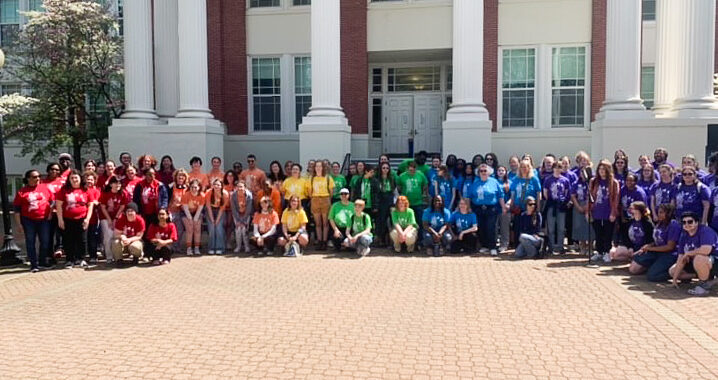UMW Graduate Rate Among Nation’s Highest
4 min readWarning: Attempt to read property "post_excerpt" on null in /home/bgonline/public_html/wp-content/themes/newsphere-pro/inc/hooks/hook-single-header.php on line 65

The University of Mary Washington has the fourth highest graduation rate in the country in a select group of colleges, with 77 percent of its students completing bachelor’s degrees, according to a study released by the Chronicle of Higher Education in December.
The study looked at four-year public and private nonprofit colleges and universities and took into account first-time, full-time students.
The graduation rates—for 2008, the latest national data available—examined students who graduated in six years or less.
Mary Washington’s rank was among 246 colleges that the Chronicle of Higher Education classified as public universities with master’s programs.
The study also reveals that one-third of the schools reported lower graduation rates in 2008 than in 2003, while UMW’s has increased 6 percentage points in that time frame.
UMW’s 77 percent graduation rate compares with a national median 53 percent.
For some students, changing family circumstances or financial troubles can prevent students from graduating within six years, said Provost Jay Harper.
According to Harper, though, if students can see that graduation is only a few semesters away, they are more likely to finish their degree. In these circumstances, quality advising can provide some of the impetus to graduate on time.
Harper said one of the best ways to enable students to graduate on time is to provide them with knowledgeable and supportive advisors.
Leila Shiekhy, a 2010 alumna, agrees with the importance of the university’s advising system.
Shiekhy, who graduated with a bachelor’s degree in biology, is currently living and traveling in California and has plans to attend graduate school to study animal behavior.
“I know my advisor was really helpful in trying to figure out what I want to do and getting suggestions,” she said. “It was helpful having the advisor go over your classes every semester.”
According to Harper, the opportunity for self-discovery that takes place over the course of UMW’s liberal arts program enables students to find majors that interest them and subsequent careers to pursue.
“The larger schools below us cannot spend the time to work with any individual student to get their needs met,” Harper said.
Alumni cited small class sizes, a wide variety of extracurricular options, proximity to major cities and a friendly atmosphere as reasons for why they succeeded at UMW.
“Mary Wash just offers a really welcoming community that’s just a good place for people who really want a well-rounded education,” Kristen Tymeson, a 2010 alumna, said.
Tymeson graduated with a bachelor’s degree in international affairs. She now works for the Department of State in the Office of Global Women’s Issues, while also completing a master’s degree in international development studies at George Washington University.
Tymeson appreciated the ability to get to know her peers at UMW, especially those in her major, and the university’s proximity to Washington, D.C.
The small class sizes and personal relationships with professors were some of the most influential factors for Audrey Westmoreland, a 2010 alumna, who graduated a semester early with a bachelor’s degree in anthropology.
“From my experience, I really appreciated the professors’ willingness to work one-on-one with students and their attentiveness,” she said.
Westmoreland is currently trying to pick a focus in archaeology to continue her education in graduate school.
One of the most effective ways to raise the graduation rate is to give students easy accessibility to the tools they need to keep track of their requirements.
Currently, the school website offers a degree evaluation function under the student records section of EagleNet that enables students to view which of their required courses they have completed and which remain unfulfilled.
Harper hopes to promote this information and make it even more accessible to students, as one of the stumbling blocks students often encounter that can delay graduation is misinformation or miscommunications about requirements.
Still, the results may not be immediate.
“Things you put into place today won’t have an impact for several years,” Harper said.
The university is also constantly looking into new majors that it can offer, according to Harper.
Students that start at UMW but discover that their true passions lie in areas of study not offered by the university transfer to other schools. These students count against UMW’s graduation rate, even though they are frequently going on to graduate elsewhere.
“The long-term goal is to be number one,” Harper said. “The president and I have a plan for UMW to be the best public liberal arts university in the country.”












